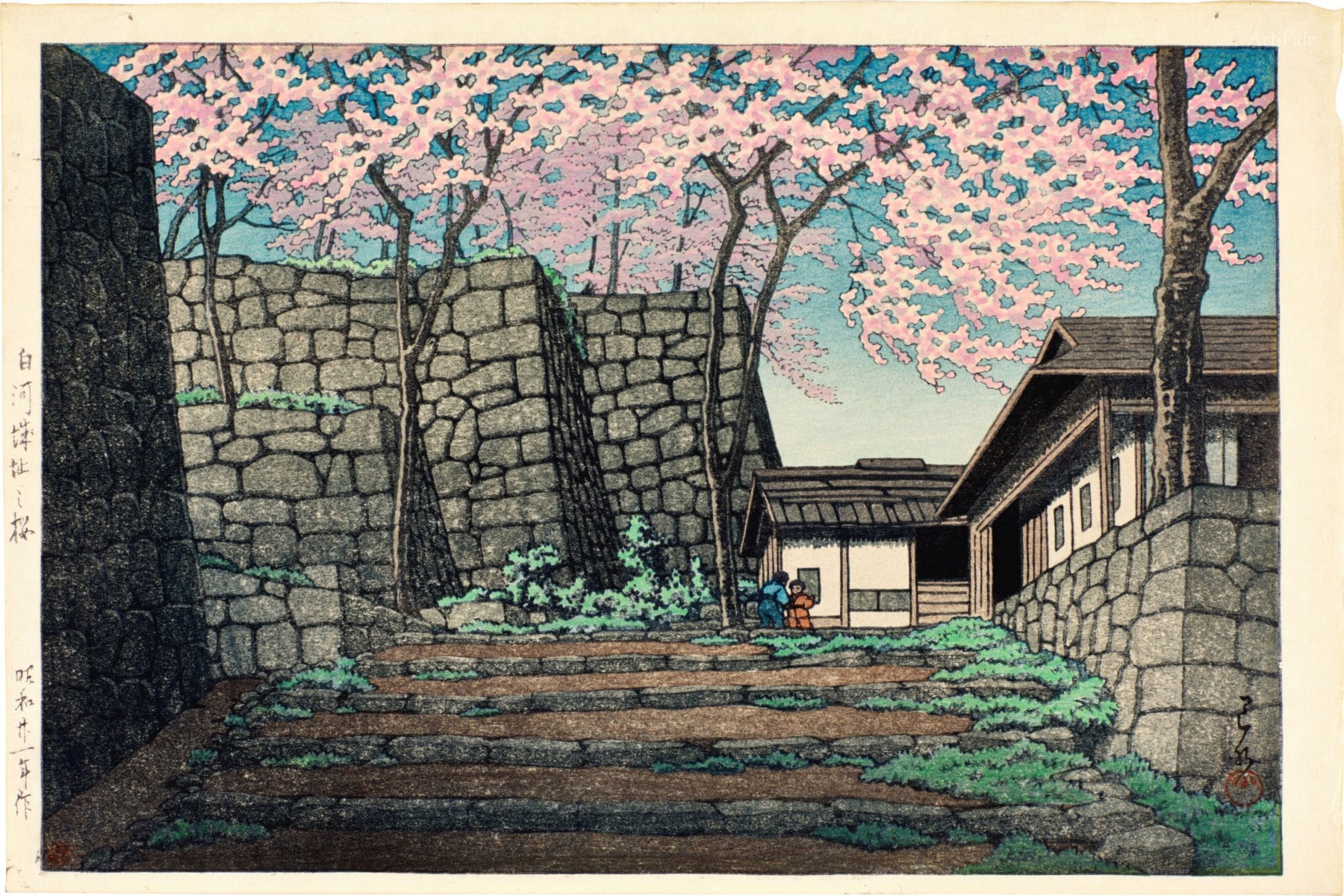
Art Appreciation
This evocative ukiyo-e print captures the serene entrance to the Shirakawa Castle ruins during cherry blossom season. The artist's mastery in woodblock printing is evident in the meticulous detailing of the rough stone walls and the delicate pink cherry blossoms gently arching over the scene, filling the sky with soft pastel hues. The composition guides the eye up the stone steps, where a solitary figure sits, evoking a quiet moment of reflection or repose amid nature and history. The contrasts between the solid, grounded stone textures and the ethereal blossoms create a beautiful balance of permanence and transient beauty, a hallmark of traditional Japanese aesthetics.
The restrained but rich color palette uses muted earth tones and varying shades of pink and blue to impart calmness and nostalgia. The piece carries a subtle emotional impact—inviting viewers to ponder the passage of time and the peaceful coexistence of human presence and nature. Created in 1946, just after World War II, the artwork may also reflect a yearning for peace and endurance in tumultuous times. This print is a fine example of Kawase Hasui’s skill in blending realism with poetic mood, keeping alive the tradition of ukiyo-e while infusing it with a renewed sense of modern sensitivity.